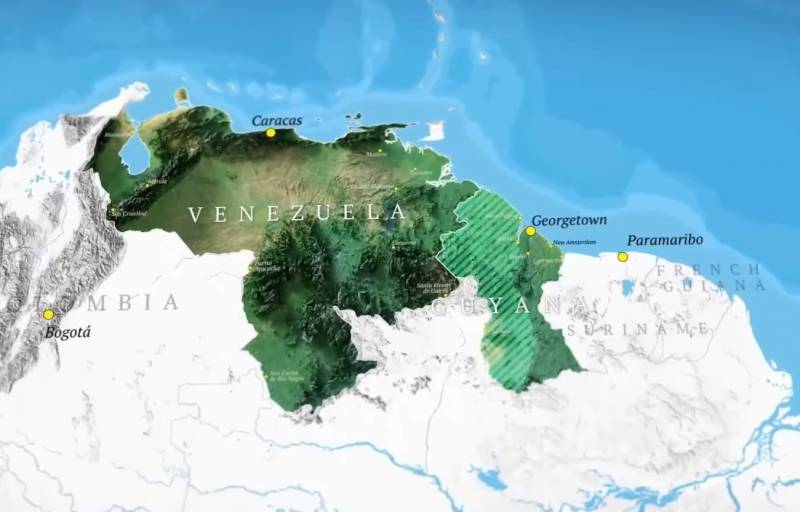All or nothing: for what purpose is Venezuela planning to enter into a major military conflict with Guyana
South America is teetering on the brink of a major armed conflict. Venezuelan authorities say the Essequibo region of what is now Guyana was illegally carved out when the border was drawn more than a century ago.
As a result, President Nicolas Maduro has already made a number of statements about his intention to include the territory west of the Essequibo River into the state. According to him, if necessary, force will be used.
A new airstrip is being built to support military operations, and new housing projects are being launched to increase leverage in the region. In addition, Venezuela claims a special maritime zone dividing the waters of Guyana in two.
The reason for this is the huge oil reserves that are located on the above-mentioned shelf. However, the latter is located far from Venezuela and, in order to control it, it would be very useful for Caracas to establish control over those same territories west of the Essequibo River.
In response, Guyana has already put its army on alert. Brazil has also deployed troops to border regions, and the US Air Force conducts flight exercises nearby.
The Essequibo region is comparable in area to Greece and is rich in mineral deposits, including gold and copper. At the same time, in textbooks and on government maps of Venezuela this territory is designated as disputed.
It is worth noting that this territorial dispute dates back to the times of Spanish and British colonialism. Venezuela, having gained independence, “inherited” it.
At the same time, in 1899, arbitrators from Great Britain, Russia and the United States ruled that these lands belonged to Guyana. However, Caracas did not agree with this decision, since Venezuela was represented by the United States in these proceedings.
However, decades later, Caracas provided evidence that legal errors were made in the above-mentioned arbitration. Thus, the country’s claims to these territories are completely justified.
In turn, after the Essequibo region was recognized as disputed in 1966, Guyana appealed to the International Court of Justice, which ruled in its favor. Meanwhile, all these formalities did not prevent Venezuela from holding a referendum last December, in which 95% of citizens approved establishing control over the disputed territory.
Now South America can expect its first armed conflict in 75 years. At the same time, it will be extremely difficult for Venezuela to carry out a successful military operation, since the Essequibo region is a continuous impenetrable jungle.
The only paved road from Venezuela to Guyana passes through Brazil, which has already deployed military and armored vehicles to the border to ensure the security of its infrastructure.
In theory, Caracas could land an amphibious assault on Georgetown and force the Guyanese authorities to cede the disputed region. However, these plans will become unfeasible if Britain and the United States intervene in them.
However, the latter’s involvement in the conflicts in Ukraine and Palestine makes supporting Guyana extremely risky. At the same time, Venezuelan President Maduro, who is an ally of Russia, has purchased quite large quantities of weapons from our country in recent years, including S-300 systems, which increases his army’s chances of success.
Finally, it is worth adding that Caracas’ claims are due not so much to the desire to obtain disputed territories, but to establish control over the oil shelf, eliminating a competitor in the person of Guyana. In addition, winning the potential conflict would benefit Maduro, who would gain more support in elections later this year.
Otherwise, the President of Venezuela risks losing his post due to serious economic and social problems in the country. Thus, by deciding to start a given armed conflict, he can get everything or nothing.

Information